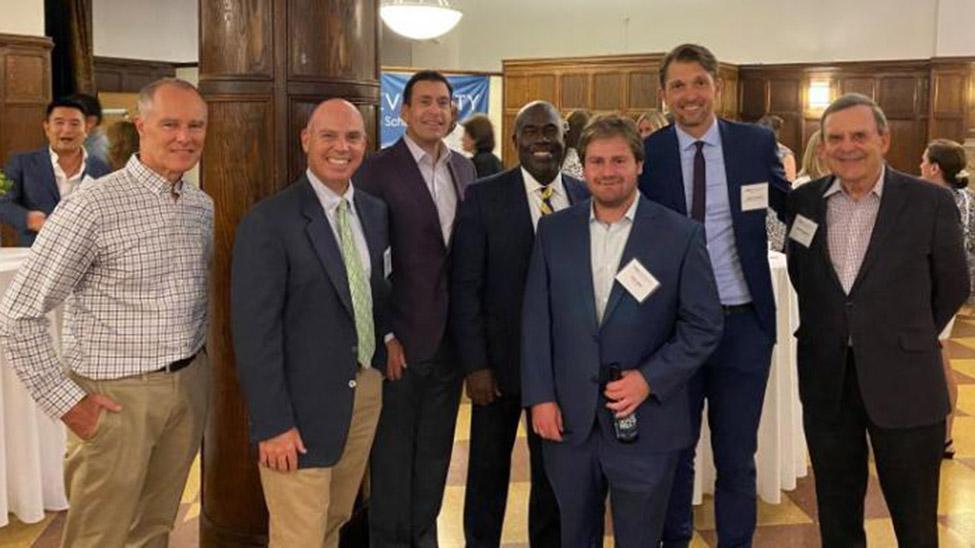
Elisabeth Haub School of Law at Pace University Brings Together Local Business and ESG Community for the Kickoff of its Sustainable Business Law Hub

On Wednesday, September 21, the Elisabeth Haub School of Law at Pace University held the kick-off event for the recently launched Sustainable Business Law Hub. The well-attended event provided a networking opportunity for like-minded business, environmental and legal professionals dedicated to sustainable business practices in Westchester County, New York City, and beyond.
Kerlin Distinguished Professor of Environmental Law, Associate Dean for Environmental Law Programs and Strategic Initiatives, and the Faculty Director of the Sustainable Business Law Hub, Professor Jason Czarnezki, welcomed guests with opening remarks, highlighting the rapidly growing field of sustainable business law and the incorporation of environmental, social and governance (ESG) values into the decisions of businesses and investors. Sustainable business law as emerged as a distinct area of law and ESG lawyers exist with increasing frequency in major firms. Of the 2022 Am Law 50 law firms, forty-two firms have a practice group or area of focus on ESG, corporate social responsibility (CSR), or sustainable business, Professor Czarnezki shared with the group.
“As the nation’s #1 program in environmental law, Haub Law continues to successfully train lawyers of the future, and our newly launched Sustainable Business Law Hub now trains the first generation of sustainable business lawyers,” remarked Horace Anderson, Dean of the Elisabeth Haub School of Law at Pace University. “We are excited about this opportunity for dialogue between the Westchester business and legal communities and we encourage local businesspeople to meet the inaugural cohort of Hub Student Scholars and discover how the Hub can support your business.”
Launched in fall 2021, Haub Law’s Sustainable Business Law Hub will serve as an incubator space, student-training program, research endeavor, and think tank devoted to addressing global sustainability challenges through policy and research projects, relationships with the business community, and capacity building in private environmental governance. The Hub will incorporate the three pillars of sustainability—economic, social and environmental welfare—into global business practices by engaging in research and policy development, improving public law and governance, and working with existing industry, the small business community, startups, and the community at-large to develop and employ innovative private environmental models and sustainability practices, such as those that promote a circular economy. Working hand-in-hand with faculty experts, students participating in the Hub will receive practical training and experience in using the law to foster sustainable business practices.
Notably, the Hub’s Advisory Board consists of Haub Law faculty, esteemed alumni, prominent members of the legal community, including ESG and sustainability leaders in the field. Recent Haub Law graduate, Colin Myers ’21, an Associate (ESG) with Paul, Weiss, Rifkind, Wharton & Garrison LLP, spoke about his time at Haub Law and his career path towards a career in ESG. He noted that the Sustainable Business Hub is pulling together all the resources and more that he had available to him as he advanced his career, noting that to advance in your niche area you need to network every opportunity you have.
Anna Marciano Romanella ’00, another alumni member of the Advisory Board, also shared her experience of how her education gave her the tools, foundation, and confidence to emerge as the Vice President of Sustainability for Zone North America at Nestle and, most recently, as Head of Sustainability for Nespresso USA. “Companies are inviting lawyers to have a seat at the table, not only for their legal acumen, but their business knowledge and their business insights and often, it is because of the way we think and process information, that we are given a seat at the table to give an opinion on sustainability topics,” said Romanella. “Pace enabled me to be able to think differently. To have an active role at the table with the ability to offer guidance on many different components within a large corporation.”